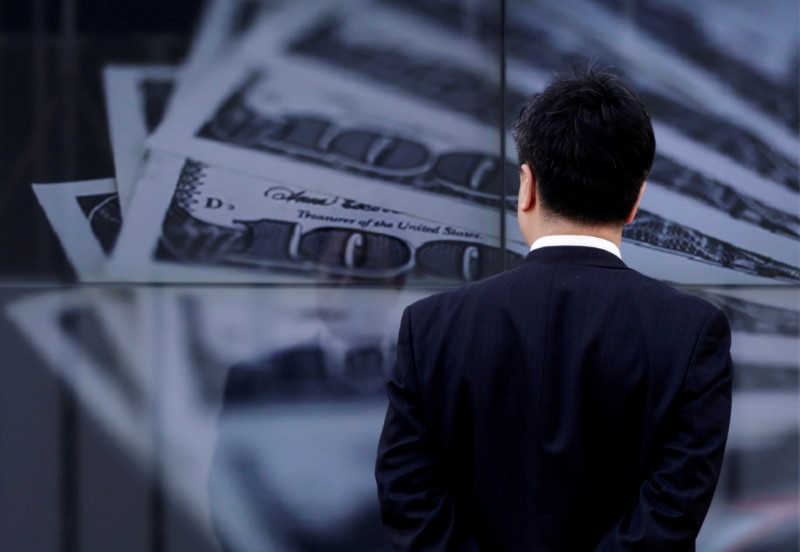Dollar Down as Bets on Aggressive Fed Interest Rate Hike Recede
2022.07.18 09:05

By Zhang Mengying
Investing.com – The dollar was down on Monday morning in Asia as the euro gasped for gas. Investors’ expectations of aggressive interest rate hikes from the U.S. Federal Reserve also receded over strong U.S. core retail sales data.
The U.S. Dollar Index that tracks the greenback against a basket of other currencies edged down 0.20% to 107.84 by 01:44 AM ET (0544 GMT).
The USD/JPY pair fell 0.24% to 138.20.
The AUD/USD pair gained 0.24% to 0.6808, and the NZD/USD pair inched up 0.09% to 0.6165.
The USD/CNY pair edged down 0.17% to 6.7458, while the GBP/USD pair jumped 0.43% to 1.1903.
The Nord Stream 1 pipeline, the biggest pipeline carrying Russian natural gas to Germany, began its annual maintenance on July 11 due to the last 10 days.
Markets are concerned that the shutdown may be extended because of the war in Ukraine. Loss of gas would hit Germany, the world’s fourth-largest economy.
“If that doesn’t happen, that would be a very bad thing for a lot of currencies,” Commonwealth Bank of Australia head of international economics Joseph Capurso told Reuters, with the euro likely to be the biggest loser and the dollar a beneficiary.
Investors also kept an eye on U.S. inflation and the possible recession brought by the monetary tightening. The United States Michigan 5-Year Inflation Expectations released on Friday fell to 2.8% for July from 3.1% in June. Fed officials signaled that they would stick to a 75-bp rate increase during their meeting on July 26-27 to bring down inflation.
In Asia-Pacific, China reported 691 news COVID cases on Saturday, up from 547 the previous day, adding to markets’ worries about its economic recovery path.
China’s central bank is going to meet on Wednesday while the Bank of Japan meets on Thursday.
“The silver lining is that China does not currently face imminent or heightened inflationary pressures, which allows the policymakers to stick to its easing bias to support the recovery,” NatWest Markets China economist Peiqian Liu told Reuters.
“However, as the hawkish Fed and China’s deleveraging policy stance both limit the PBoC’s room to cut rates aggressively or consecutively, we still expect fiscal easing to be the main policy lever in H2.”
Elsewhere, the European Central Bank is expected to raise rates by 25 bps at its policy meeting later this week.








